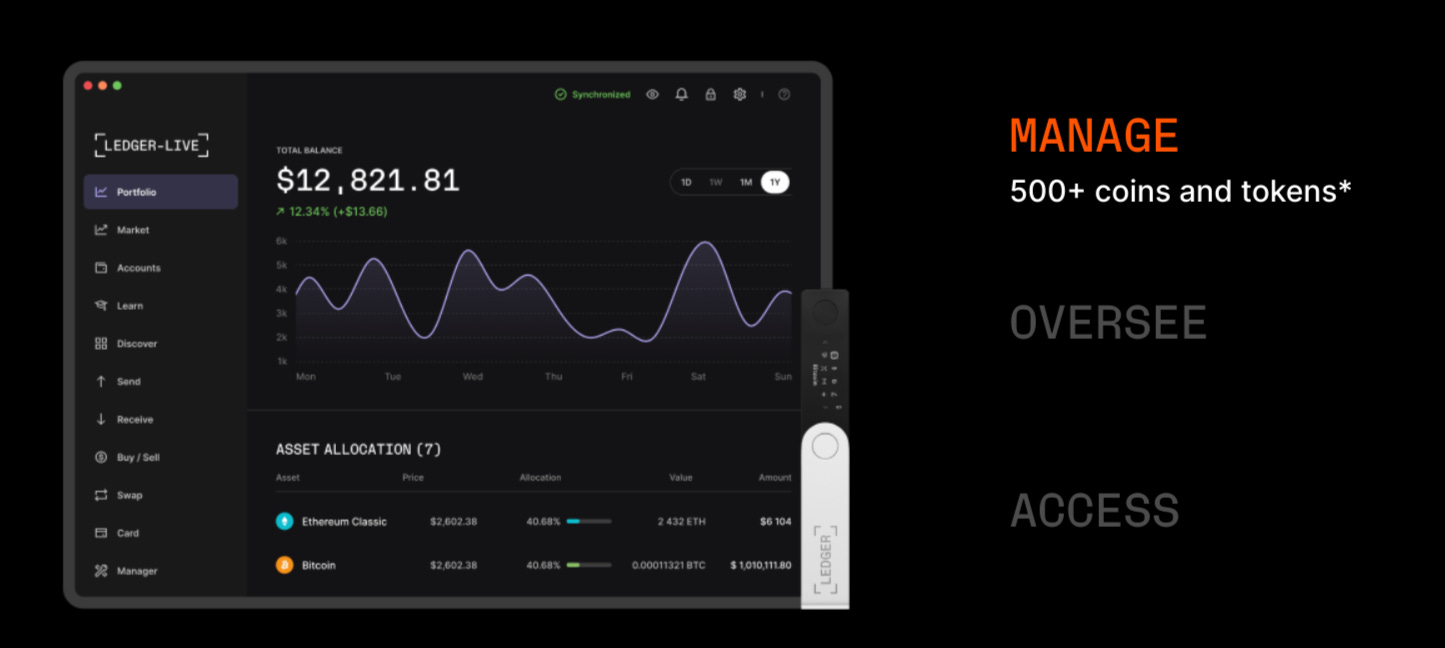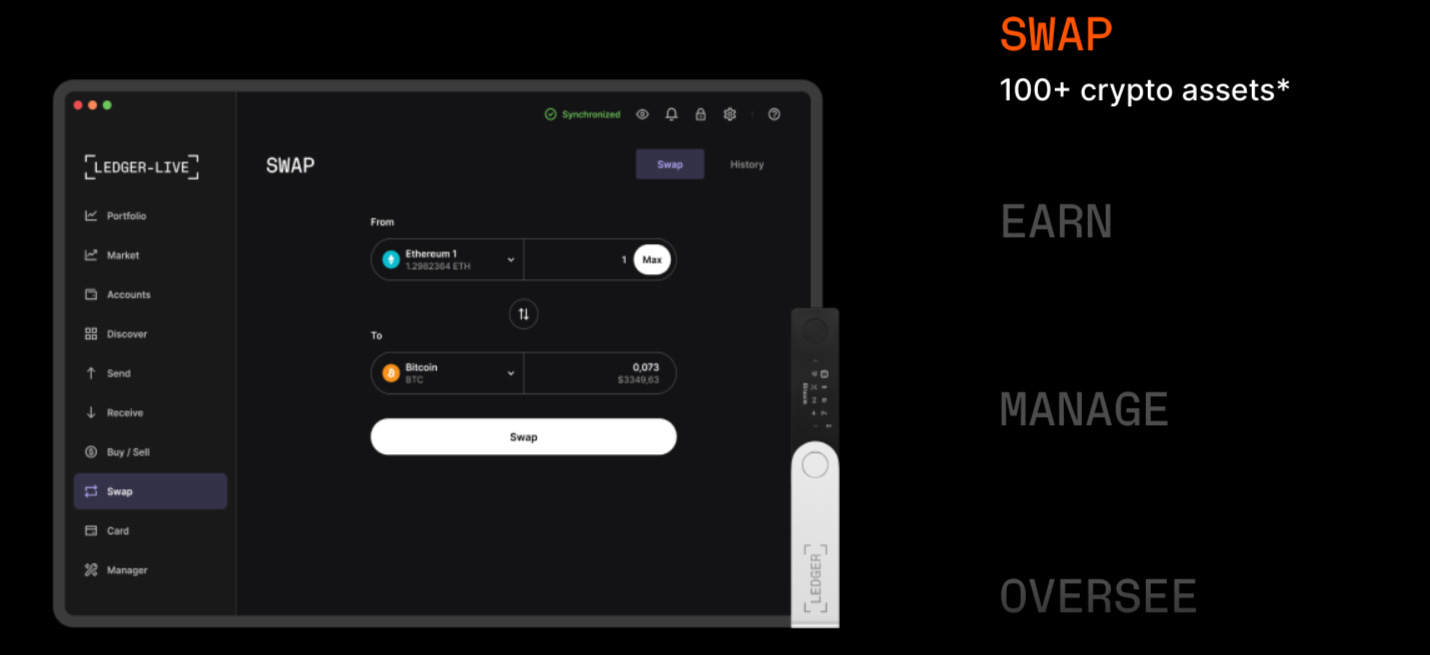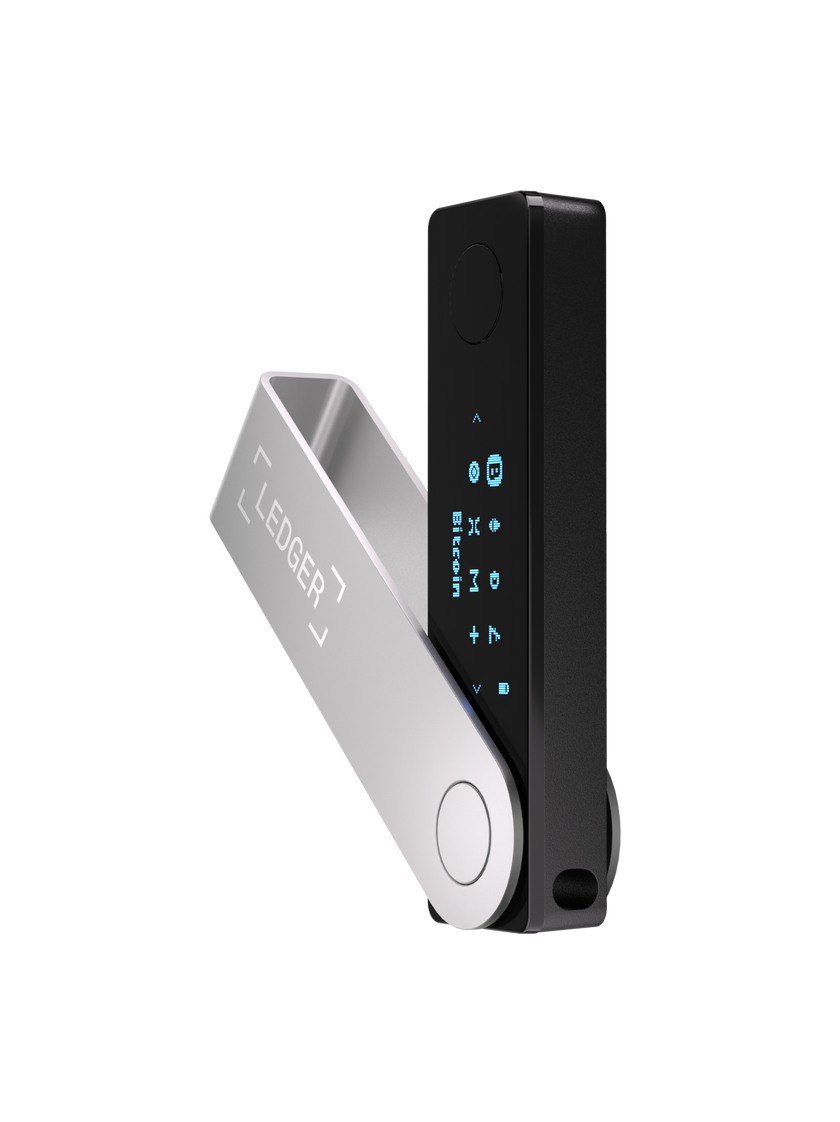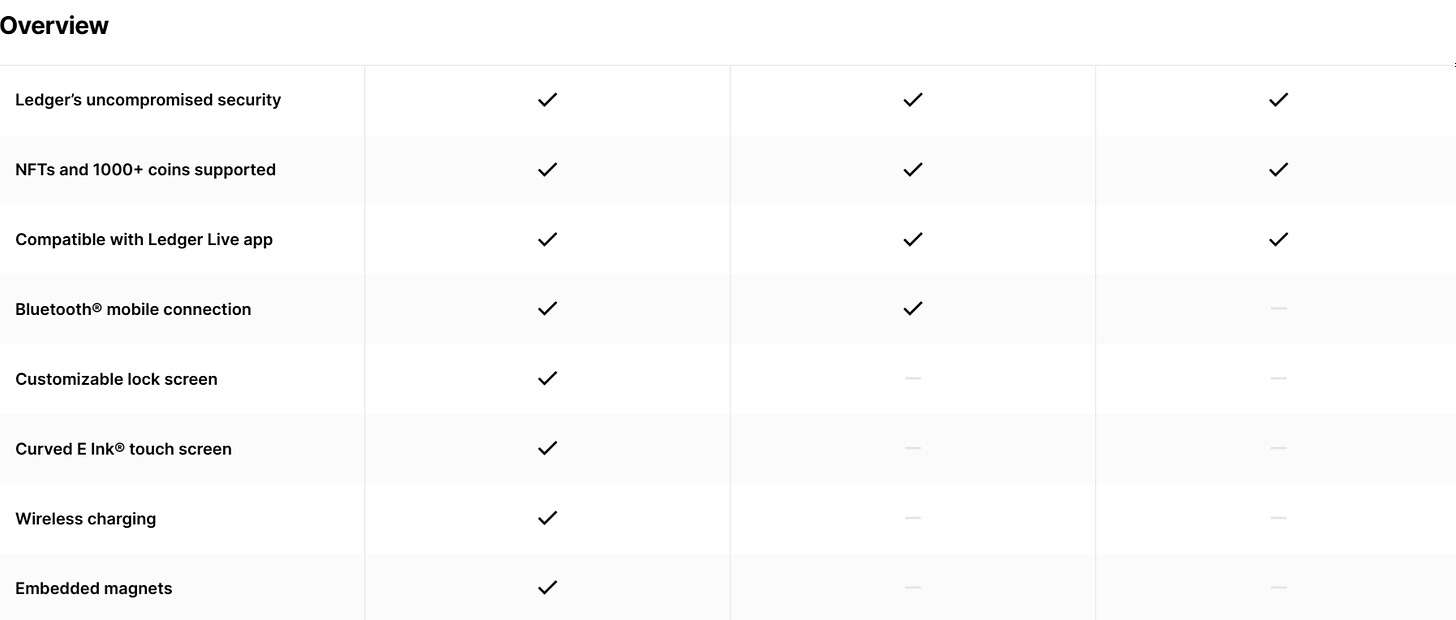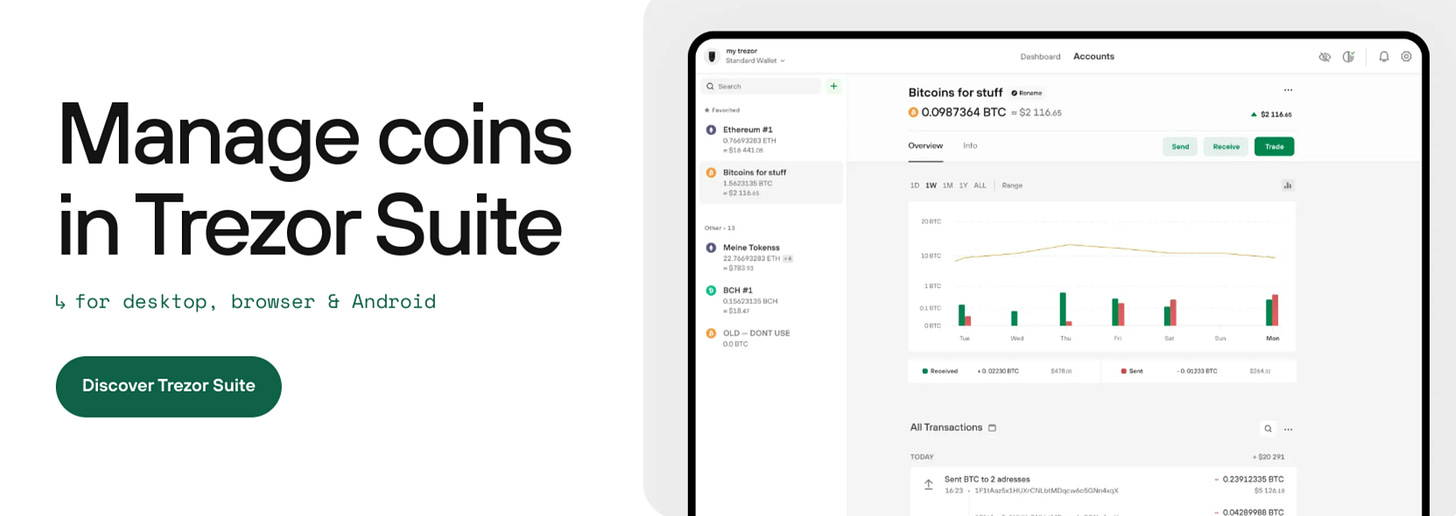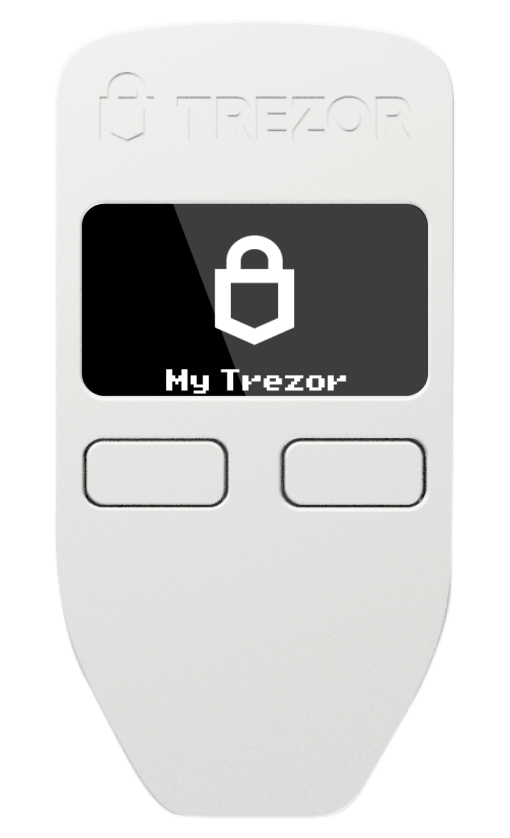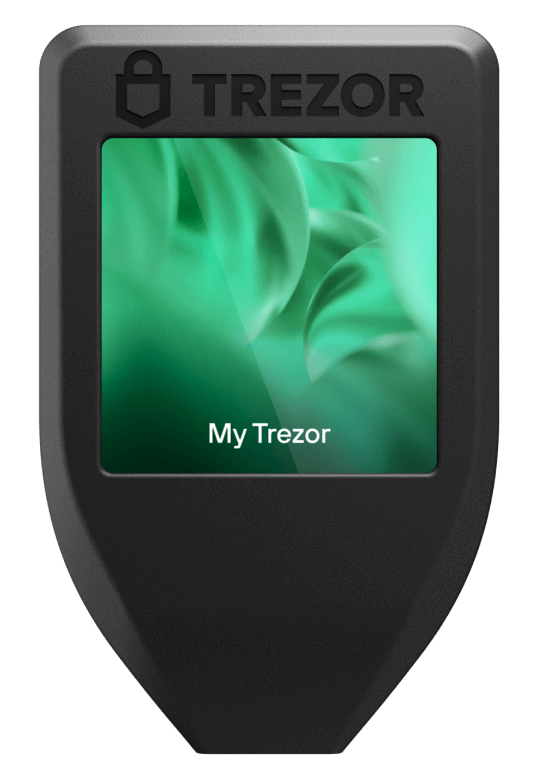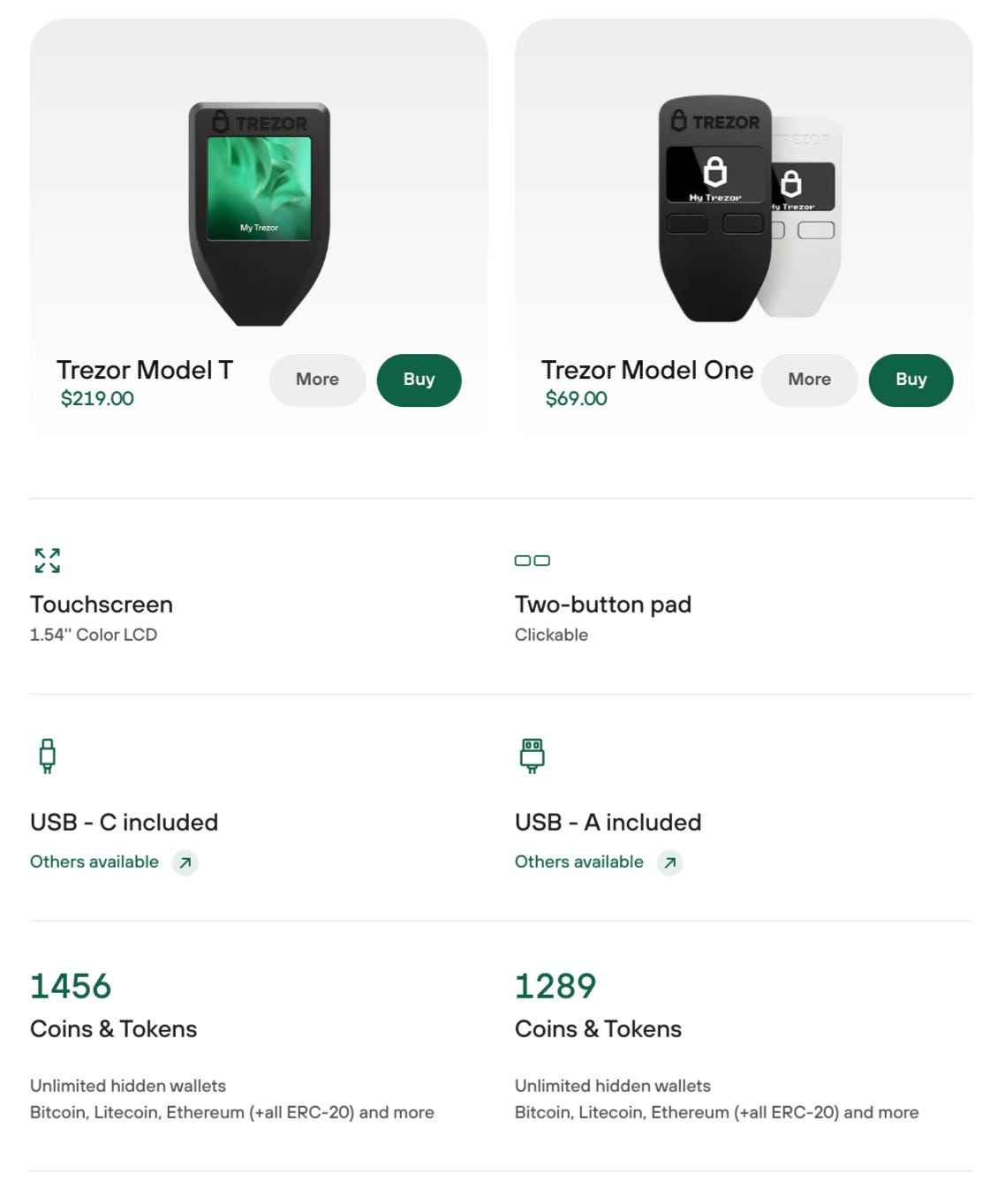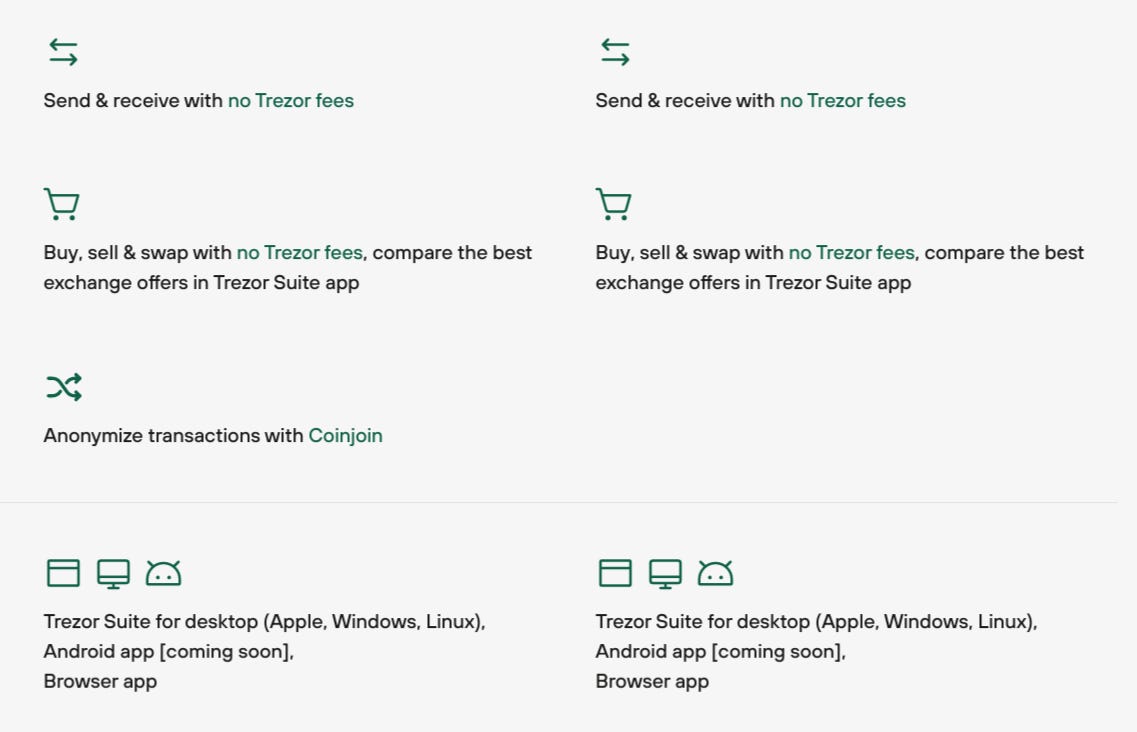Why You Need A Crypto Wallet
Smart contracts provide the ability to store and trade digital assets while maintaining full custody and control. Code acts as the third-party, allowing you to interact with blockchain networks through your wallet.
Although centralized entities may create the decentralized applications (dapps) that execute these contracts, they do not have access to your funds.
In other words, your digital assets are secure from external interference.
Why You Need A Hardware Wallet
While digital assets are stored on the blockchain, a hardware wallet serves as a storage device for your private key. This private key is crucial, as it’s used to unlock access to your address on-chain.
When generating a blockchain transaction, you essentially “sign” a unique message, proving ownership of your private key. Since it's impossible to forge this signature without access to your private key, no one can conduct a transaction without access to your hardware wallet.
By isolating your private keys from the internet, hardware wallets mitigate your vulnerability to online attacks.
Most hardware wallets are protected physically similarly to cell phones, with a pin, fingerprint, or password.
If your hardware wallet is lost, the assets are backed up with a seed phrase. Your seed phrase is a list of 12-24 words that regenerates your private key. You can use your seed phrase to move your keys to a different hardware wallet.
Ideally, you store your seed phrase physically, in a fireproof manner, and never online.
With this basic understanding in mind, here are the most popular hardware wallets on the market today.
Ledger
Ledger Live
Ledger Nano S Plus
Ledger Nano X
Ledger Stax - Coming Soon
Comparing Ledgers
Trezor
Trezor Suite
Trezor Model One
Trezor Model T
Comparing Trezors
Thank you for reading!
Disclaimer: Opinions here are my own. None of this is financial or investment advice. You should always do your own research, form your own opinions and make your own decisions.



